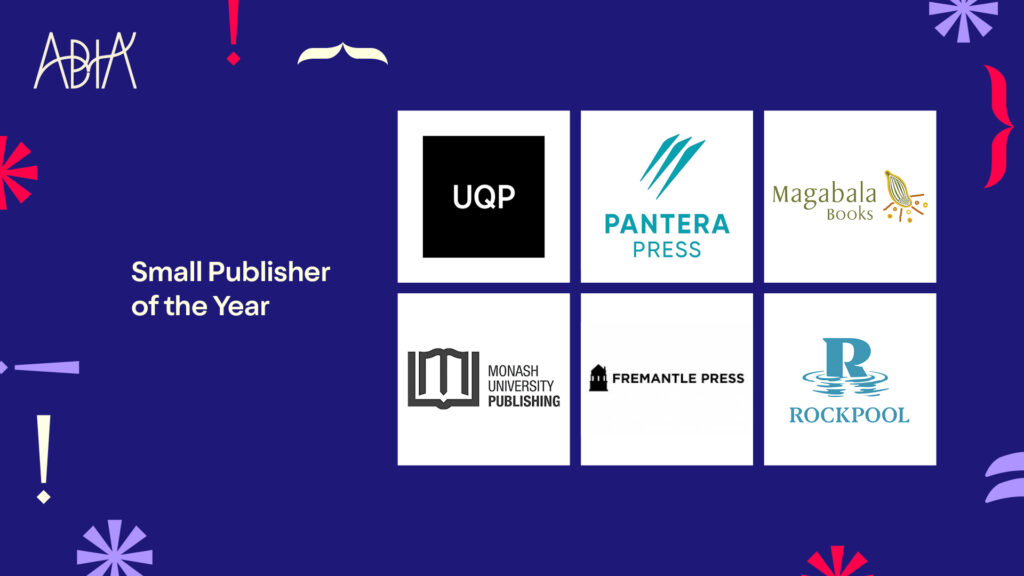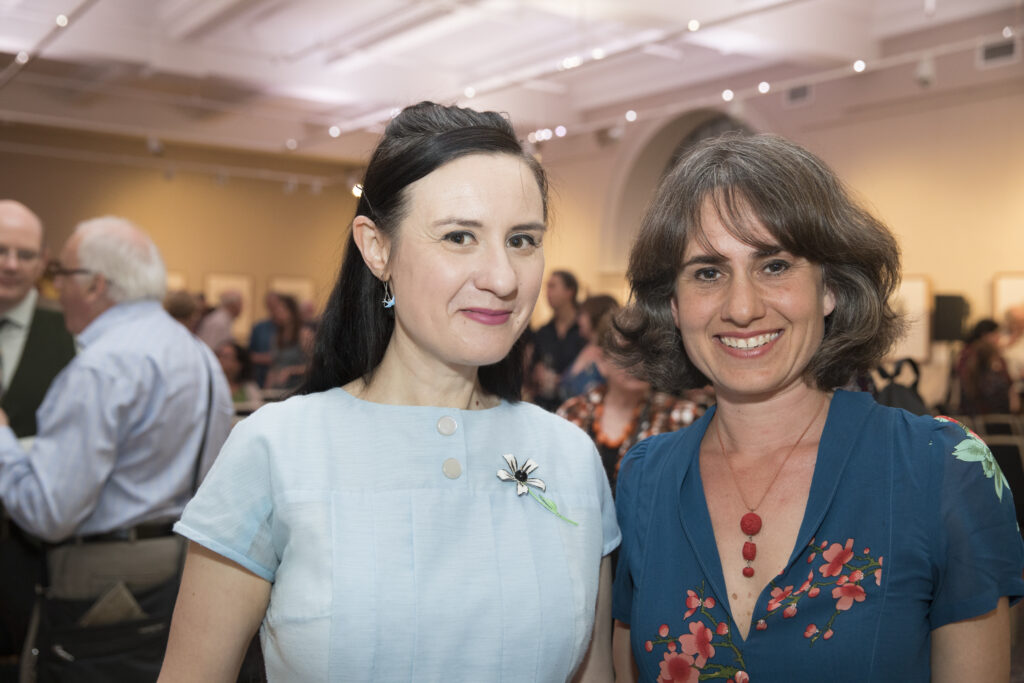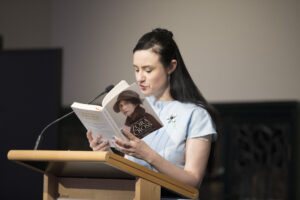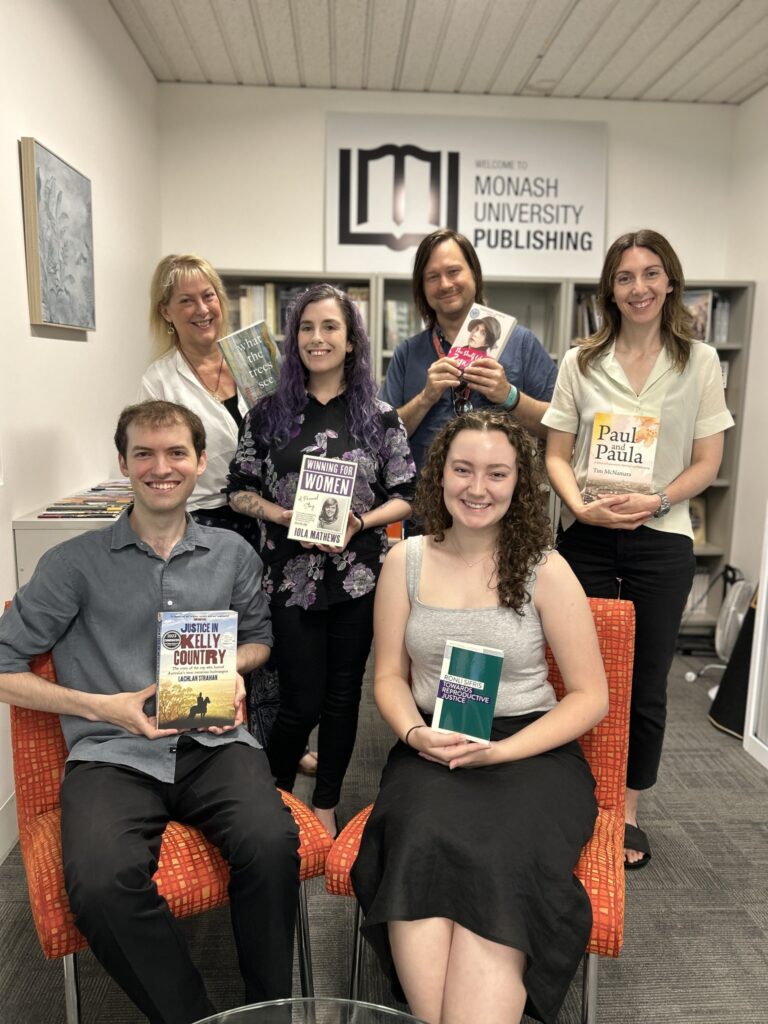
Dave Witty’s What the Trees See has been shortlisted for the The Mark and Evett Moran NIB Awards 2024! VOTE HERE

Dave Witty’s What the Trees See has been shortlisted for the The Mark and Evett Moran NIB Awards 2024! VOTE HERE

It is with deep sadness that we acknowledge the death of a great historian Emeritus Professor John Rickard. John was a brilliant teacher, mentor and author, and he will be missed by many.
Do you know of an excellent index?
Have you written or published one yourself?
Nominations are now open for the ANZSI Indexing Awards and ANZSI John Simkin Medal 2024. The ANZSI John Simkin Medal recognises an outstanding book index or periodical index compiled in Australia or New Zealand. ‘Highly Commended’ certificates may also be awarded.
Indexes may be nominated by authors, editors, indexers, publishers or readers.
The index nominated must be commercially available and have an imprint date of 2020 or later. The index must have been compiled in Australia or New Zealand, even though the text to which it refers may have been published elsewhere; and the index must be entirely the indexer’s own work. The index should be substantial in size; the subject matter complex; and the language, form and structure should demonstrate the indexer’s expertise in serving the needs of the text and the reader.
The Judging Panel comprises experienced indexers, editors, librarians and/or publishers. The judging process is confidential and nominated indexer names are known only to the Receiving Officer.
A completed nomination form together with a print copy of the book, or a link to the digital file of both book and index, is required. Print books will be returned after judging.
Nomination forms, assessment criteria and lists of previous winners are available at https://www.anzsi.org/about-us/awards/the-john-simkin-medal/
Nominations must be received no later than 5pm AEST, Wednesday 31 July 2024 at GPO Box 2069, Canberra ACT 2601 Australia or (in the case of digital books) by email to the Receiving Officer at receivingofficer@anzsi.org
Nominators who have posted books must advise the Receiving Officer by email that they have done so. All nominations received will be acknowledged by email.
ANZSI Receiving Officer, receivingofficer@anzsi.org
We recognise and support the work of The History Council of Victoria, and as such wish to share a message from Emeritus Professor Peter McPhee AM:
The History Council of Victoria has no recurrent funding, and relies on Friends membership fees, tax-deductible donations and, where possible, grants from philanthropic trusts and individuals. I am often struck by the range of activities the History Council is able to sustain with such a modest funding base:
We also administer the Jane Hansen Prize for Advocacy and the Lynette Russell Schools Prize for First Peoples’ History.
The History Council continues to be active in advocacy work, including recently on:
We consistently highlight the value of an education in history and the place of historical literacy in the quality of public life, elaborated in our “Value of History” statement: https://www.
We are fortunate to have a Board of talented individuals drawn from cultural and educational institutions and heritage bodies; history teachers; academic and professional historians; and other organisations. These are busy people whose commitment to the place of history in our society nevertheless motivates them to organise, participate in and support our activities.
I hope you will feel able to support our work.
Emeritus Professor Peter McPhee AM
Chair

Monash University Publishing is thrilled to announce we have been nominated for the Small Publisher of the Year in the 2024 Australian Book Industry Awards (ABIAs) alongside University of Queensland Press, Pantera Press, Magabala Books, Fremantle Press and Rockpool. We were previously nominated in the same category in 2023.
According to the ABIA website “This is an award for the Australian publisher with a turnover of less than $10 million whose publishing programme (including sales, promotion, editorial and production) demonstrated excellence, commensurate with the publisher’s size, in the preceding calendar year, and which has contributed to the overall success of the industry.”
We look forward to the results when the Awards Ceremony takes place on Thursday 9 May at Zinc Fed Square in Melbourne.
In the meantime we’re crossing our fingers and working on delivering a strong range of titles through the year. Find out more about the awards on the official website.

In November 2019, I had the honour of launching The Shelf Life of Zora Cross to a full house in the Gallery Room of the State Library of NSW. Since then, the book has firmly established its position as a landmark work of Australian literary biography. In my address that night I celebrated Cathy’s huge achievement in rendering the complex literary and personal life of Zora Cross, and also reflected on how Zora’s life and work resonates into the present. The Shelf Life of Zora Cross continues to resonate, with its continued successes and enthusiastic readership, and now the publication of the second edition this month. I am excited to present my launch speech from 2019, as I congratulate Cathy on the continued life of her brilliant biography, with the publication of the new edition.
The Shelf Life of Zora Cross, by the esteemed writer, researcher and editor Cathy Perkins, brings Zora Cross – the woman, the writer – to us with immediacy and complexity. The book is not only a significant addition to Australian literary history, but also one that makes strong connections to contemporary life and literary culture. There are many details that strike me about Zora Cross from Perkins’s evocative portrayal of her in Shelf Life: her drive, ambition and appetite for life; her courage and her vigour; her strong sense of vocation – that she lived to write, and that she worked hard to secure the ability to do so. Money, time and space remain crucial, and often hard-won, necessities for writers today, especially women. There was a particular moment early in the book where Zora leapt from the page for me – a description of an encounter with a journalist in Brisbane in 1915, when Zora was working concurrently as a writer, a teacher, an actor and the editor of arts and social newspaper the Bohemian. This life of moving between roles and projects is a familiar scenario for contemporary writers. Then, as now, this way of working requires strong reserves of energy and focus:
One day in 1915, Zora is rushing from a rehearsal at the Tivoli Theatre in central Brisbane to the office of the Bohemian to pick up her editor’s salary when she meets a journalist who will later write a profile on her for the Australian Woman’s Mirror. She is ‘slight and pale and terrific with energy’ and covered in red printer’s ink from the paper’s scarlet masthead, which looks like blood on her white dress.
This image of the young Zora, her dress stained with ink, was so startling it was as if I was meeting her in person: I could feel her energy radiate from the page across time, a testament to Perkins’s skill in drawing from her research the resonant moments of Zora’s life that give the reader a sense of intimacy and direct connection. There were other points where I felt Zora similarly close, such as a much quieter moment from later in her life, at Glenbrook, when she was working on the Roman novel that was her final literary work:
Zora was ‘literally bogged down in Rome’ in the years that followed, April remembers. She would have a 2000-years-away look on her face when the girls came home from school. She might be slightly annoyed that they had pulled her back to the present, but she forgave them when they made her a cup of tea. At the end of each day when the house was quiet, she would pour dried peas or beans into a bowl to soak overnight for the next day’s dinner. Then she would settle down to her typewriter, listening for the stationmaster’s footsteps as he walked the length of the platform to keep himself awake. And she would write.
 Again I felt an immediacy, as if I was quietly there in the room too, watching Zora concentrating at her typewriter, older now, but writing with the same intensity of focus and dedication that Perkins presents vividly as Zora’s mode of living and working.
Again I felt an immediacy, as if I was quietly there in the room too, watching Zora concentrating at her typewriter, older now, but writing with the same intensity of focus and dedication that Perkins presents vividly as Zora’s mode of living and working.
This interweaving of writing and life is at the heart of literary biography. Writers exist in multiple: their written work, their identities as public figures and their private lives. Many readers will discover Zora, who has been a neglected figure in Australian literary history, for the first time in reading Shelf Life. The book’s inventive structure, focusing on the story of Zora’s life and work through the relationships that sustained, drove and influenced her, show how strongly she was enmeshed in Australian cultural and literary life, even if her name is not widely known today.
With Shelf Life, Perkins has brought Zora Cross to new generations of readers, and taken us into not only Zora’s life and literary works, but also into the archives, locations and personal connections that preserve her traces. This, to me, was one of the most enjoyable aspects of the book – following the paper trail of Zora’s life through newspapers, letters and manuscripts, entering the archives with Perkins as she pieces Zora’s life story together.
In one of the early chapters the phrase ‘material legacy’ stood out to me. It’s used in reference to the collection of letters received from authors by critic and editor Bertram Stevens: Zora’s letters to him, as Perkins describes, are intimate outpourings and have the effect of a diary as much as correspondence:
They’re not business letters, nor are they love letters; often they read more like a diary. Because many are undated, the order in the volume is mixed up, so the sense of intimacy begins on the first page. These outpourings chart Zora’s progress from a teacher who writes in the evenings, to a touring actress who writes on trains and mountain tops, to a recognised author who writes all the time. They are ‘notorious and shocking’, she admits, because she writes with a lack of inhibition caused by youth, grief and distance.
I thought about Zora writing these letters – the intensity of her communication, most likely without thought of the words ever being read by anyone beyond the recipient. Those who have done archival research involving personal letters will know the odd, otherworldly feeling of reading them. It is like listening in on a private conversation, but also listening back through time. In Shelf Life, Perkins draws on the energy and intimacy of these letters, and in doing so she brings these qualities to our reading.
While reading Shelf Life, I thought of a line from Beverley Farmer, who wrote in 1987, reflecting on her reading of The Persimmon Tree by Marjorie Barnard, ‘It means very much to me, the invisible network of women reading each other’s work and cherishing it.’ The idea of the ‘invisible network’ has stuck with me, and came up when I was reading Shelf Life, which is very much about visibility, about networks and about women writers, including the kinds of relationships that come about between women who write. I thought particularly of Zora and Perkins here, and the relationship they have across time. Here there is a relationship between a biographer and her subject, but also a relationship between women and between writers.
In Shelf Life, we are also led to consider how Zora’s memory and legacy have both persisted and become hidden. I’m sure all of us have wondered, at some point in our lives, what of us might remain into the future, after we have passed away. How might we persist in social or cultural memory? One way is through our families: our children and their descendants. Zora lives on in her family – her grandchildren and their children. Another way that our legacy persists is through our work: the books we might write, trees we might plant, students we might teach, ideas we might shape, decisions we might make that go on to impact the future.
Writers are given to wondering what of their words might live on into the future – some more than others, as we see in Shelf Life (I love the image of the 97-year-old Dame Mary Gilmore at the very end of her life, asking her niece, ‘Has everything gone to the Mitchell?’) As a writer who has manuscripts in the State Library collection I sometimes wonder who might, potentially, in a century’s time request to look at them, and the books and artworks that I have made. The thought of these works living on after I am gone, having captured something of life in Sydney in the early twenty-first century, reminds me of the power of writing to connect us across time, and that writing can be a way of speaking to the future.
As we gather here in the library tonight we might cast our imaginations back 100 years, to think of Zora Cross in the Mitchell Library reading room, researching her lectures on Australian literature for Sydney Teacher’s College. Or the student Zora, coming to the library in the evenings to read and study. We might think of Zora’s books and her letters in boxes in the stacks. Then returning to the present, we celebrate Cathy Perkins’s The Shelf Life of Zora Cross, which has allowed us to enter so richly into the life of this prolific and inspiring writer.
Dr Vanessa Berry, writer, artist and lecturer, University of Sydney


 We are delighted to announce various staff changes at Monash University Publishing in 2024.
We are delighted to announce various staff changes at Monash University Publishing in 2024.
Malcolm Neil has been appointed as Interim Director while Julia Carlomagno is on maternity leave (and has welcomed a lovely baby boy).
Malcolm has over 30 years’ experience in the publishing and content industry, and most recently was Head of Sales and Marketing at Melbourne University Publishing.
Greg Bain continues as Publisher of the In the National Interest series.
Stephen Campbell is Stock and Sales Coordinator, while Elly Cridland has been appointed Publishing Officer.
Having almost completed her studies at Swinburne University, Kayla Willson has started with us as our full-time Intern.
Kate Morgan, Sarah Cannon, Joanne Mullins and Les Thomas complete the team.
More information can be found here.
We’re looking forward to introducing you to an exciting line-up of books, author events including many writers’ festivals, launches and more. You can sign up for our enews and follow us on our socials.

We are thrilled that Lockdown by Chip Le Grand has been longlisted for the 2023 Australian Political Book of the Year Award.
The longlist has been decided by the Award’s distinguished judging panel Laura Tingle, and John Warhurst AO, and new judge, Barrie Cassidy. The longlist are those books published during the 2022–23 financial year that the judges believe provide the most compelling contribution to understanding Australian political events and debates.
The following books have made the 2023 longlist:
The Australian Political Book of the Year Award judges said the longlist is extraordinary for the breadth and variety it brings to political discourse.
‘Not only does it include in depth historical context, but it covers the recent federal election, the politics of the pandemic, war crimes and issues like foreign policy, indigenous affairs and the monarchy,’ said the judges.
The shortlist will be announced in Melbourne on Thursday 12 October, where each author to have their book shortlisted will receive $1000.
The winner will be announced by the Treasurer of Australia, the Hon Dr Jim Chalmers MP, on Wednesday 25 October at the National Press Club of Australia in Canberra.